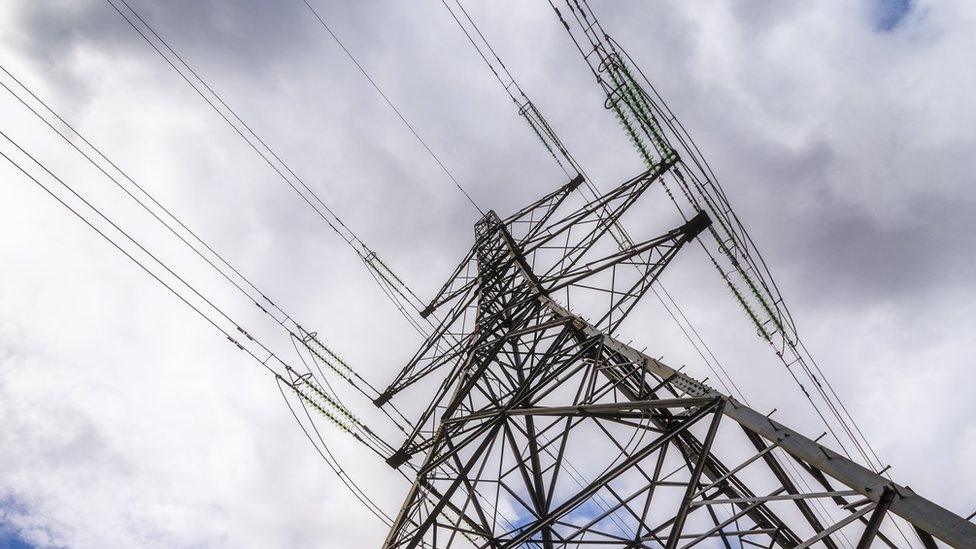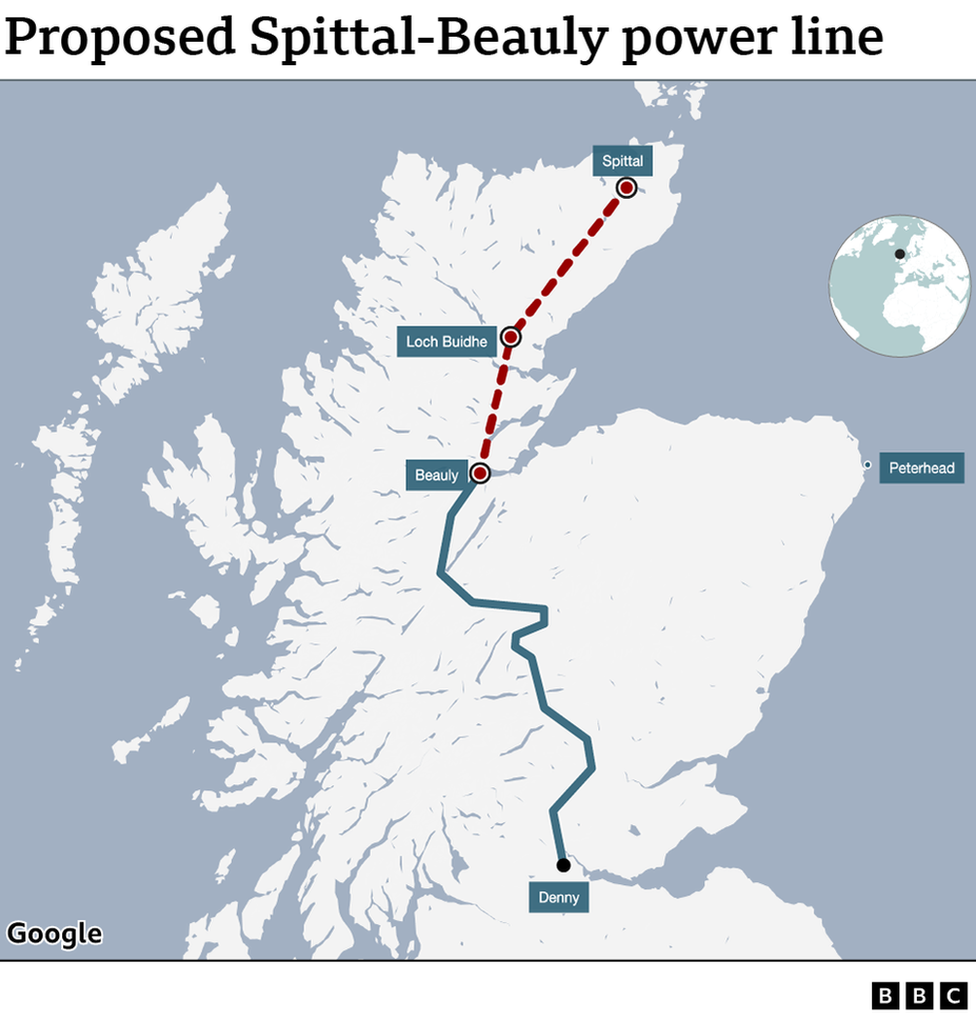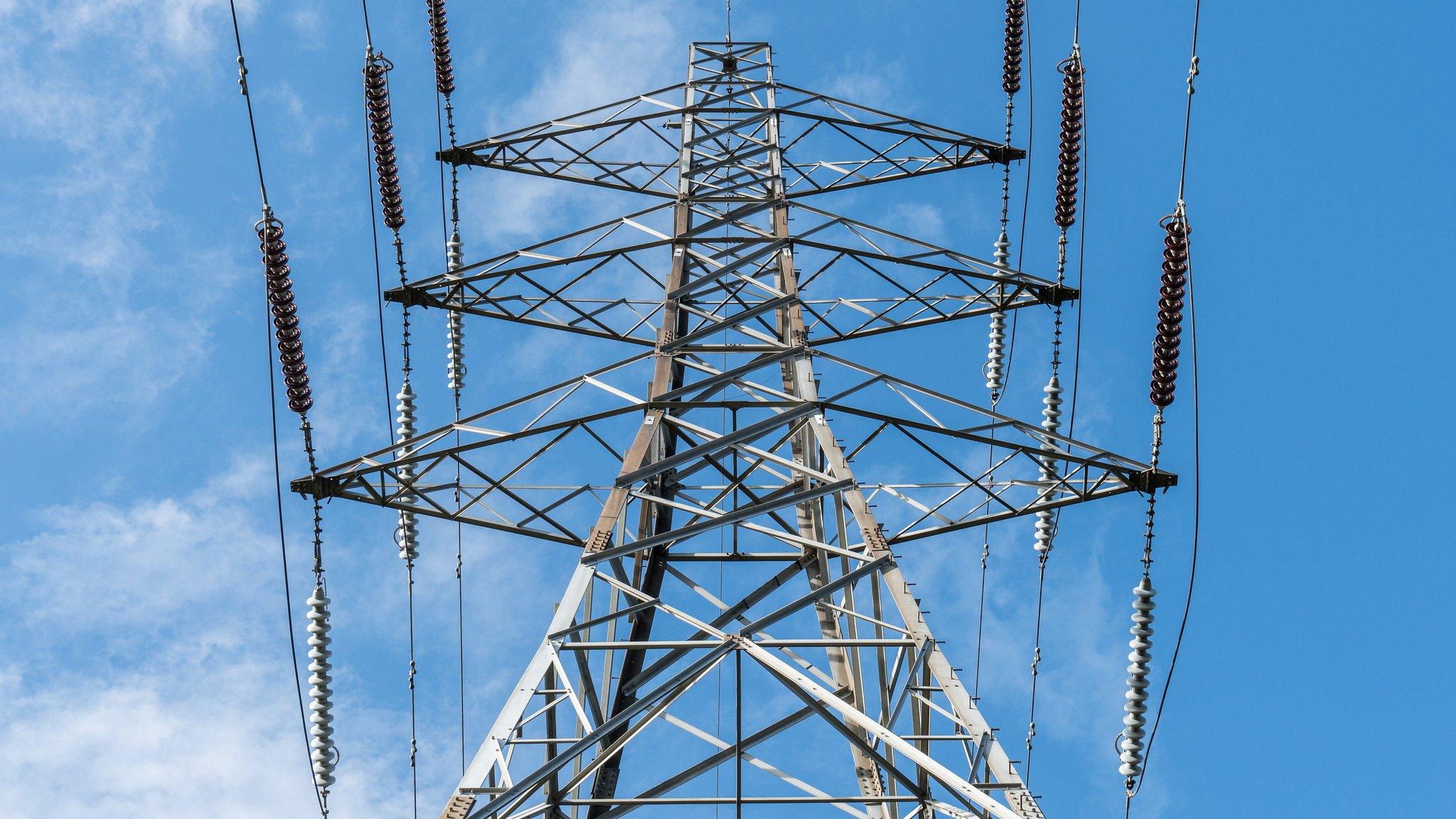SSE looking at alternatives to Spittal-Beauly powerline route
- Published

SSE Transmission has said it will look at ways of reducing the impact of a new 103-mile (167km) overhead powerline in the Highlands.
The Spittal to Beauly plans would move renewable energy generated in the Highlands to the rest of the UK.
But campaigners have concerns about the visual impact on rural landscapes and disruption to communities.
SSE Transmission said it was responding to public feedback.
It said the project team would look at possible routes for the 400kV line, locations for substations and other potential mitigation measures, with further consultation planned.
SSE said the line, which would run via Loch Buidhe, was part of work to help UK and Scottish governments meet net zero targets.
It would connect with one connecting Beauly with Denny, which was upgraded about a decade ago.


Last month, Strathpeffer and Contin Better Cable Route Group said the overhead line would "absolutely destroy" the natural beauty of the landscape around it.
Spokesman Dan Bailey said: "We are on the edge of the Highlands, we are a scenic location, we have got campsites, we have got hotels, mountain bike businesses, walking guides, wildlife watching.
"All of these things feed into the local economy.
"All of these things are under threat if you plough the line through the wrong part of our area."
"We will do everything we can to try to trigger a public inquiry if the preferred route is just bulldozed through regardless of local feeling."
John Mackenzie, the Earl of Cromartie and the current chief of Clan Mackenzie, also voiced concerns.
He said: "This is not a wasteland, this is an area of natural beauty where people come to live because it is a good place to bring children up, to work and to appreciate just how wonderful it is.
"In Europe, power lines running across areas of outstanding scenery would be undergrounded, so why not here?"
SSE community liaison manager Martin Godwin said: "We very much look forward to continuing to engage constructively with affected communities and wider stakeholders."
Related topics
- Published3 April 2023
